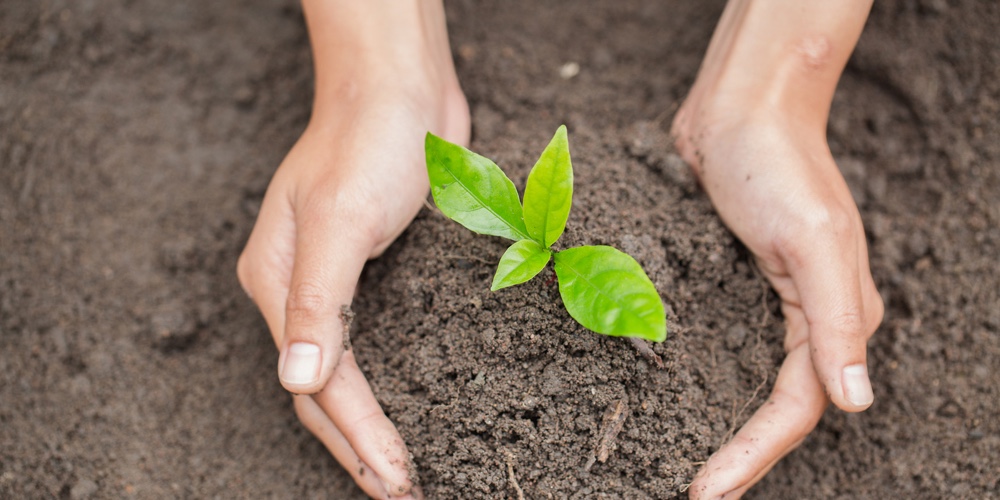Time to grow your resilience

With the onset of daily news reports being enough to make you want to curl up into a ball, is it any wonder that mental health issues are growing daily in our homes, schools, and communities.
Fear of losing our health, our homes, and our loved ones contribute to our anxiety. In this article, we’re going to look at how vital it is to stay positive and gain skills in resilience to power through these uncertain times.
Let’s first take a brief look at whether resilience is a skill that can be learned.
For some lucky people, resilience is part of who they are; it’s built into their DNA. For many others, resilience is a skill that you can learn and improve on. You can also develop your resilience when faced with shocking world news events and in other more personal situations in your own life. Learning to be less passive, more grateful, and more autonomous will help to build a firm foundation for more resilience in your life.
What is resilience?
Resilience, as a psychological element, was first written about in the 1970s. An American developmental psychologist, Emmy Werner, studied an entire group of babies born in 1955 into adulthood on the relatively poor Hawaiian Island of Kauai.
The findings of her research [JS1] were published in 1973. It revealed that two-thirds of the study group who had issues at home with alcoholic or mentally ill parents went on to have troubles in their own early adult lives. However, one-third of the young adults displayed no difficulties at all and were described as “resilient.”
Resilience in our daily lives is the ability to bounce back from traumatic events and situations.
What is a lack of resilience?
Let’s take a look at some of the factors and ways of conducting ourselves, which show a lack of resilience to help us identify those traits that make us resilient.
Overthinking
How are you when you have to make a decision? Do you worry about making the wrong decision? Do you feel a need to analyze every single option before you reach a conclusion? You may have a touch of paralysis analysis. According to recent surveys and reports by experts, [JS2], which look to uncover precisely how resilient we are and how it affects us, it found that over-analyzing can be a significant factor in lowering our resilience.
Lack of perspective
The report also found out that those with less resilience have trouble keeping things in perspective. Of those surveyed, 63% said that they worry unnecessarily about day-to-day situations. In short, when we lose sight of the big picture and blow things out of proportion, we have a lack of perspective. Resilient people have the ability to take more in their stride.
Health problems
Interestingly, it appears that your general health affects resilience. When the above survey looked into levels of resilience, they found that those with the below disorders were less likely to display resilience:
- Eating disorders
- Irritable bowel
- Asthma
- Clinical depression
- ADHD
- OCD
- Bipolar disorder
- PTSD
So, how can we actively begin to build up resilience in our lives when we must cope with oppressive news items bombarding our screens daily on global situations such as the coronavirus?
How do I learn to be more resilient?
According to psychologists, once you take some positive steps to deal with your overall well-being, it’s possible to learn the skills of resilience.
Any positive steps you take in looking after yourself and your well-being will enable you to deal with setbacks or other hiccups in your life.
Be autonomous
It’s not just adults who are affected by the constant bombardment of the media, children are impacted too. According to experts, you can help your children develop resilience by encouraging autonomy and responsibility in their decision making. When children work through difficulties, with adult supervision, they learn more about themselves, lean towards independence, and grow their resilience.
Research shows people don’t always seek autonomy because it’s accompanied by accountability. Resilient people embrace autonomy and the uncertainty that comes with it. They know that each experience of empowerment allows them to practice flexibility and gain confidence in living life successfully.
You are in control
Do you feel that you have control over your life, or does life just happen to you? Resilient people know that the actions they take will affect the outcomes they achieve. They also know that there are many factors outside of their control, such as COVID-19. Taking control of what you can manage is the first step. Practicing social distancing, wearing a mask when out in public, washing your hands, and staying connected to friends and family are simple things that you can control. Taking it even further, you can control your diet, exercise, and how you are spending your free time—control what you can control and put the rest aside for now.
Practice gratitude
Practicing gratitude will help grow your resilience and move you toward a happier life. I remember a few years back hearing Brene Brown[JS3] talk about putting into practice a daily gratitude time through either journaling, meditation, or practicing family grace before a meal and saying one thing you were grateful for that day. Having an attitude of gratitude doesn’t cut it! You need a daily practice. One of the triggers I have put into my life is my toothbrush. In the morning and at bedtime when I am brushing my teeth, I think about all that I am grateful for. In the morning, I think about the people that have touched my life, and in the evenings, I think more broadly about what I was grateful for that day. This practice alone has changed my life for the better.
Strong Social Connections
Life is about connections and relationships matter, especially when you are dealing with a problem. Connections with other people give us a sense of belonging. Whenever you’re dealing with a problem, it is valuable to have people who can offer support. Talking about the challenges you are facing can be an excellent way to gain perspective, look for new solutions, or simply express your emotions.
To finish on …
Whether it’s financial or other challenging issues such as the current coronavirus, work on developing a more resilient approach—to more easily cope with the challenges you face in your personal life.
Start today and begin to see a better future.





